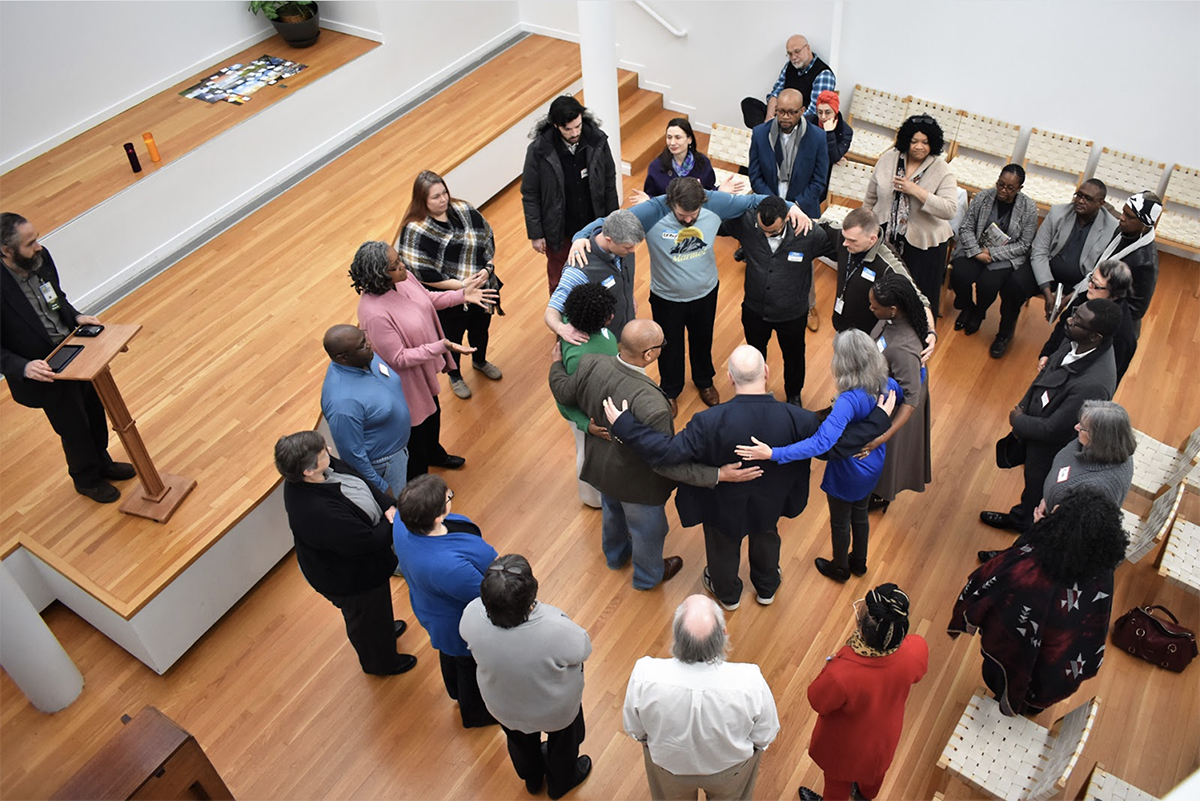How to be a Successful College Chaplain: A Spiritual Caretaker

A successful chaplain meets people from all walks of life with open arms. They are role models of self-actualization and altruism. Practicing spiritual care, chaplains on university campuses offer themselves as a spiritual teacher and focus on an often overlooked component of student wellness, their spiritual health.
According to Rev. Brian E. Konkol, professor of religion at Syracuse University, the term chaplain refers to “a keeper of sacred things.” St. Martin, originally a military man, once used his sword to tear his own coat in two to help clothe an impoverished man on the street. The torn coat was memorialized and placed in a capella, or, chapel. That coat, or “sacred thing,” was watched over by a designated capellano, or what we know today as a chaplain.
The chaplain once physically guarded a symbol of the sanctity of human compassion. There is a word for this special type of care. As Taqwa Surapati, a graduate from Hartford Seminary’s Islamic Chaplaincy program, so eloquently put it, working as a chaplain is a practice in “spiritual care.” Spiritual care is attending to an individual’s mental, physical, and spiritual needs, especially during challenging points in their lives so that they can live a better life.
Role of a Chaplain
Chaplains offer support, resources, and an open ear to a multitude of individuals seeking spiritual wellness. They do not judge but rather collect and hold unique interactions with everybody they meet and work to inspire spiritual growth. They listen, sympathize, and offer guidance. The work that a chaplain is called to do is to be as open, welcoming, and helpful as possible. A positive chaplain is ready to be generous with their time and energy, bringing resources and wisdom into the lives of those seeking their help. Such unwavering compassion is the foundation for setting an example of spiritual fortitude. Examples of spiritually, mentally, and physically well people are so necessary in today’s society especially since the events of the COVID-19 pandemic. Chaplains are placed in various settings where one might be seeking spiritual guidance or holistic care. The main fields of work are in hospitals, prisons and jails, colleges, and military units. Some chaplains may specialize in one of these areas and deepen relationships with people at a specific site.
How to be a successful College Chaplain
First and foremost, to be a successful university chaplain one must genuinely enjoy being in the company of young people and listening to their spiritual and material challenges. On a university campus, it can be extremely difficult to excel as a college student and be well in all the areas of one’s life: spiritual, mental, and physical. With the surmounting global issues facing our planet, and the ongoing COVID-19 pandemic, a designated spiritual caretaker, such as a chaplain, could be as important as ever for students. Chaplains demonstrate a strong spiritual foundation and a desire to act in the midst of enduring human crises. What better way to encourage human kindness and community care than leading by example?
From learning in an interfaith community on campus to working in an interfaith community in the larger world, Hartford’s MAC program prepares students to meet the spiritual needs of various communities and individuals. Students study for two semesters in a field of their choice (prisons and jails, hospitals, military units, and universities) to learn where their unique skills are needed most.
Read more about the MA program in Chaplaincy at Hartford Seminary.
Tags: college chaplain, how to be a successful college chaplain
